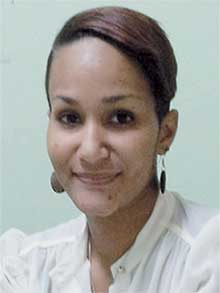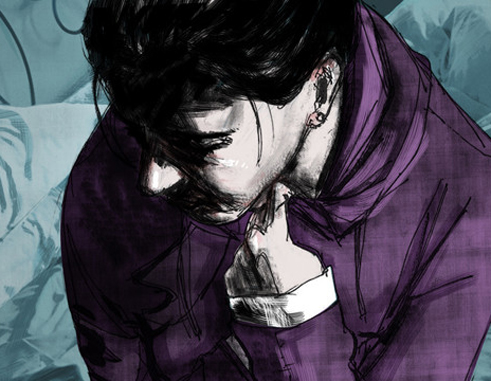
THE past few articles have explored ways in which many survivors of sexual violence and also survivors of various things try to cope. This article will delve into the ways in which we try to take control to manage the ways in which we cope.
For many of us our coping mechanisms have become second nature, they are a part of us. They are in many ways as important to us as food or air. Without them, we may find it difficult to function. I am sure that for many of us the trigger appears when we least expect it and often when we are unable to do anything to prevent or stop it. Triggers can be debilitating which is why for the most part we have all found coping mechanisms to get us through the days. Two of the three coping mechanisms we will discuss are in many ways socially acceptable and often praised – the last falls into the unhealthy bracket. The trouble with our socially acceptable coping mechanisms is that we can be fooled into thinking that they are healthy because they yield positive results in certain areas, when in fact they should be placed with the unhealthy coping mechanisms. As survivors of one thing or another, coping becomes second nature. It gives you a sense of control and helps you get through the days without feeling like you’re falling apart. In many ways, coping mechanisms allow us to pretend the traumatic experiences that we have lived through didn’t happen to us. We are able to create these new versions of ourselves allowing us to function. It is important that you continue to assess the ways in which you have chosen to cope and ensure that the ones that you think are healthy are truly healthy. Be honest with yourself. For example, being able to multi-task can be a good thing but it can also be used as a way to ensure that the mind is always being used, that there are no free moments left for your mind to wander, to think. The analysis of our coping mechanisms isn’t easy, it forces you to be brutally honest with yourself about how you have been functioning since the trauma, but it is necessary if you are to move from functioning to living.
As mentioned above this week we will focus on busyness, work addiction and stealing. When we look at busyness, we think of someone who is able to juggle many things at once, a person who is constantly on the go. If you really think about what being overly busy means you will begin to see that as a coping mechanism it is offering you a distraction from the psychological pain. It is allowing you to convince yourself that you can handle anything – so much so, that you can handle everything. It allows you to convince yourself that if you are able to handle everything, then in theory you should also be able to handle the traumatic experience. Being overly busy allows you to channel your stress and the psychological burden into something that is socially acceptable and often praise worthy. It allows you to think that you are winning in all areas, when in truth, you are failing at self-care. There is also the option of being overly busy at the concept of self-care as well: gyming, yoga, spinning classes, etc. You use the concept of busyness and being excessively active to help you cope with the helplessness that was initially felt and a possible underlying theme haunting you since the traumatic experience. You become a DO’er, not one that things are done to. Workaholics have similar behaviour to those who find the need to keep busy. In both areas you have chosen a socially acceptable way to cope – you are proving to yourself and those around you that you can do it, that you are doing it, that within the specific field, you are a force to be reckoned with. Being a workaholic has given you a purpose. You are driven by the need to succeed, to excel, to surpass those around you, to show everyone that you are the best, that you are okay. It allows you to feel less like a victim, less out of control. Look at me, look at what I am capable of, I can’t possibly be damaged or broken and still achieve this much. It causes you to think that you can handle it all, that your psychological pain hasn’t beaten you. You tell yourself, I am in charge, I got this. It allows you to numb the pain, to numb the memories and to focus on the end result of completing one task after another. It allows you to have the admiration of those within your circle because of your accomplishments.
Now, we will look at stealing and how it relates to the two other coping mechanisms we have discussed. Stealing can be seen as a way to engage in risky behavior as it allows the adrenaline to start pumping. You are no longer numb, there is a sensation coursing through your veins. Stealing allows you, if you are underage, to say to the adults, ‘you have blamed me for so much, explained how I have been or am an embarrassment to the family, how I am a bad apple, then sure, let me fulfill that image you have me. I’ll publicly embarrass you for not listening, for not protecting and supporting me through this trauma’. The act of stealing can also be like busyness and working excessively – a distraction from what you may continuously be dealing with. It can be an act of rebellion or a cry for help. It can be an act that you decide on for punishment for the flawed perception that you have done something and need to be punished for it. The act of stealing can also be committed out of a rationalization; something was taken from me, so I can take from others as well. With all three of the coping mechanisms discussed above, one of the running themes is a need to distract oneself from their memories of the trauma by not allowing time for those thoughts to arise. The education here is to help you see the patterns that you have created, or those that have emerged to allow you to function. Once you understand the patterns and the behaviours, the next step is the analysis of the ways you have coped. Keep the healthy ones and work on replacing the unhealthy. I will continue to reiterate, we are not here to judge you. As survivors we have all battled with more than one of the coping mechanisms being discussed. The continued goal is to help you understand where you are on your healing journey, to help you to start figuring out how you have been affected, which methods of coping are healthy and which ones still need to be adjusted, when you are ready. I understand that this will take time. The first step is taking the time to understand where you are and to be honest with yourself. Own the fact that you have been coping in whatever way you have chosen because it has worked for you, but also question whether you take another step and whether your coping methods truly work for you. Ask yourself, are you holding onto them because they feel safe? I know none of this is easy, and I am not asking you to push or rush anything. Take your time. Take the baby steps when you are ready, one step at a time.
I want to mention that if you are using any of the coping mechanisms we have discussed in this article, that it may be your way of trying to regain control. There is nothing wrong with you. Understanding how you have been affected will help you feel a bit more in control as you begin to or continue to heal. We are not here to judge any of you for how you chose to cope. We are here to hopefully educate and validate what you are feeling, what you are going through and how you are dealing with it on a daily basis. Each of us copes in the best way we know how. Each of us is doing what we can to get through the day, to get out of bed. Coping is what you did to survive the trauma of being sexually abused, and it is what you do now to make it through each day.
Next week we will look at a few more. Should there be a specific topic you would like us to cover or a question you would like answered, please reach out to us.
Survivors of sexual assault need a supportive environment to begin the healing process. They need to believe and feel that they are part of a culture that doesn’t support individuals who commit sexual crimes. We have to be the difference we want to see in our country. We have to be willing to start to make change.






